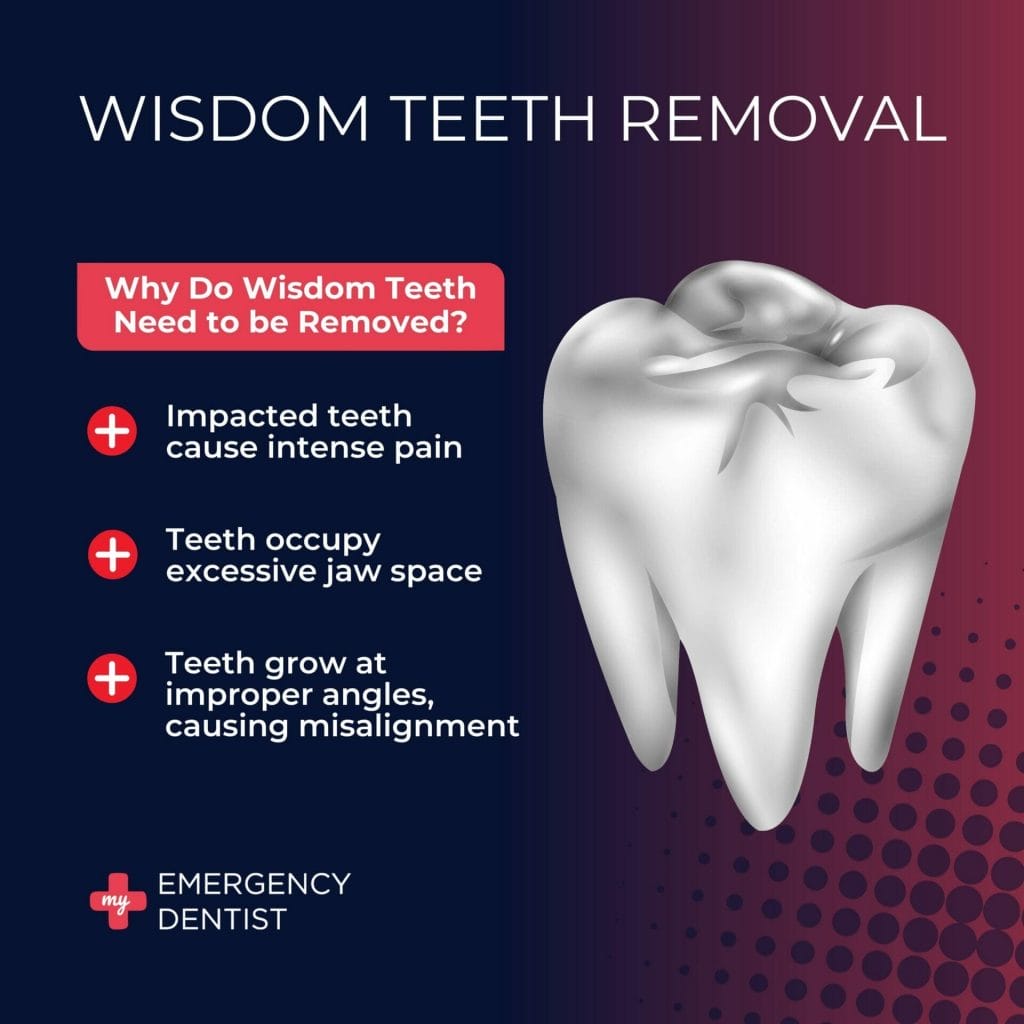Wisdom teeth extraction is a very common dental procedure, typically performed by an experienced dentist in wisdom teeth removal. The idea can be overwhelming, and knowing more about the process can put your mind at ease.

Pain is the biggest reason and could lead to emergency tooth removal if it’s related to your wisdom teeth. A full examination and x-ray are required to determine treatment. If you need an emergency tooth extraction in Perth, contact us immediately.
Along with general pain, you may experience other symptoms. These are,
At My Emergency Dentist Clinic, to remove a single wisdom tooth costs $399. For the removal of all 4 wisdom teeth, the cost is $1,400. It is important to note that these prices are indicative averages. The actual cost can vary based on the patient’s medical condition, requirements, and the materials used.
Various sedation options (sleep dentistry) are available for wisdom tooth extraction, including:
Types of wisdom teeth can be classified based on their position and level of eruption:
Potential risks associated with wisdom teeth removal include:
Diet: A soft or liquid diet is typically recommended for the first few days to avoid dislodging blood clots and to minimise chewing.